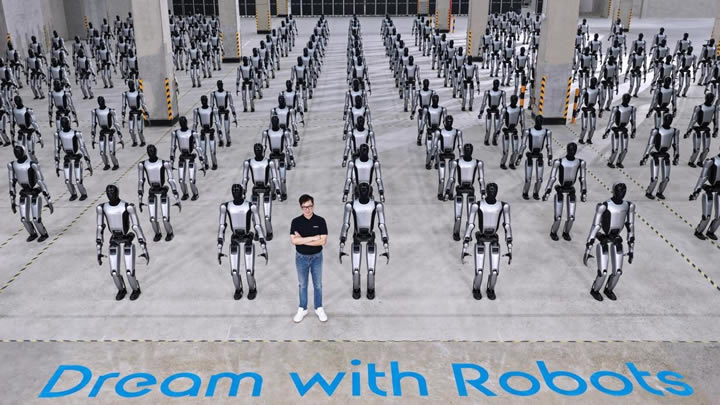
UBTECH has officially launched mass production and delivery of its first several hundred full-scale industrial humanoid robots, the Walker S2. These units will be rolled out in stages across frontline industrial scenarios. This milestone advances the company toward its goal of delivering 500 units this year and marks the start of widespread real-world adoption of humanoid robotics.
By building a closed-loop commercial model—spanning technology development, real-world implementation, delivery, and iterative improvement—UBTECH has established the capabilities needed to rapidly respond to market demands, efficiently meet customer orders, and set a replicable standard for deploying humanoid robots at scale. The start of mass delivery underscores UBTECH’s growing capacity to enhance and reshape industrial ecosystems, accelerating the transition toward global, high-quality, large-scale deployment.
With market demand rising, UBTECH has laid out a clear production roadmap, aiming for an annual capacity of 5,000 industrial humanoid robots by 2026 and scaling to 10,000 units by 2027. The company is already providing Walker S2 robots for major industrial applications, including automotive manufacturing, smart factories, intelligent logistics, and data collection centers.
UBTECH is also pioneering a shift from product delivery to the provision of full operational capabilities, introducing the industry’s first standardized, repeatable turnkey solution. Powered by UBTECH’s proprietary BrainNet technology platform, these solutions enable rapid scenario deployment, improve ease of use for industrial customers, and expand opportunities for applied innovation in manufacturing environments. Walker S2 is the world’s first industrial humanoid robot equipped with Co-Agent—UBTECH’s intelligent agent system—which provides closed-loop operating abilities such as intention recognition, task planning, tool operation, and autonomous anomaly detection and resolution. Combined with a comprehensive user training system, this move from product provision to scenario-level empowerment establishes a practical path toward scaled adoption of humanoid robotics.

Since early 2025, UBTECH’s Walker series has generated orders exceeding 800 million yuan (approximately USD $112 million), reaffirming the company’s leadership in global humanoid commercialization. Notable among these orders is a 159 million yuan contract to deploy Walker S2 robots in a Zigong data collection center—the second-largest order this year, following a record 250 million yuan order in September. These achievements reflect the rising demand for industrial humanoids and strong market confidence in UBTECH’s offerings.
UBTECH works with leading companies including BYD, Dongfeng Liuzhou Motor, Geely Auto, FAW-Volkswagen Qingdao, Audi FAW, BAIC New Energy, Foxconn, and SF Express. With the Walker S series now integrated into a wide variety of automotive production lines, the company continues to accumulate significant real-world data and frontline operational experience. This steady scenario-based deployment is essential for refining product performance and enables the development of production-line-ready swarm intelligence for task coordination.
Humanoid robots—widely regarded as the pinnacle of embodied intelligence—have reached a pivotal moment, progressing from experimental prototypes to industrial-scale deployment. Achieving real-world commercialization in the era of embodied intelligence requires solving three core challenges: technological readiness, practical deployment, and scalable delivery. As the first company to complete the full cycle from technical validation to commercial deployment in industrial settings, UBTECH is executing a proven approach: advancing core technologies for field deployment, applying real-world insights to optimize delivery models, and scaling production to fuel continuous technological advancement. UBTECH remains committed to collaborating with industry partners to build an open, cooperative ecosystem and accelerate the widespread adoption of humanoid robotics.
Source: www.roboticstomorrow.com
